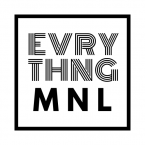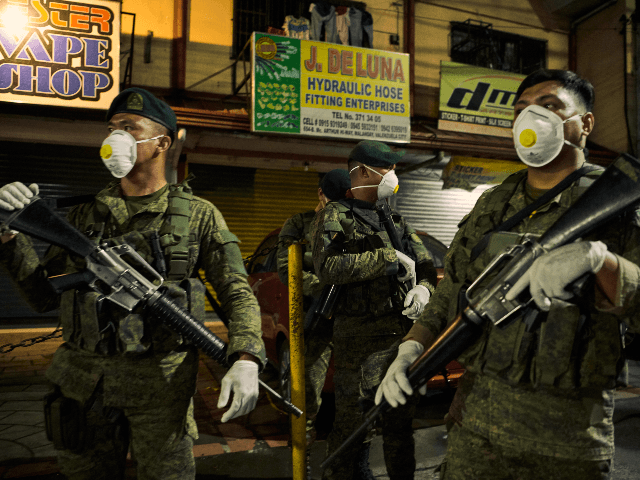Just two days after the start of the Metro Manila-wide COVID-19 lockdown, President Duterte announced that it will now be extended to the whole of Luzon. Due to the sudden transition into enhanced community quarantine, a lot of people are confused as to what they are supposed to do. Here are some handy answers to some of the common questions, as well as reminders to help you deal with the lockdown.
What is different with the enhanced community quarantine?
The main difference between the enhanced community quarantine and the earlier declaration is the scope. The initial COVID-19 community quarantine covered only the National Capital Region. Other provinces around the region were free to make their own quarantine declarations based on their discretion. The new order supersedes these separate declarations, with all the provinces in Luzon now subject to the same regulations put on Metro Manila.
Another major difference is the stricter rules. Whereas the earlier declaration still allowed for some movement of people and limited mass transportation, the enhanced community quarantine calls for a total shutdown of all mass transportation. Private vehicles are also not allowed on the road except for special cases. All citizens are required to stay in their homes unless buying basic necessities.

What about work suspensions?
The President has already ordered that all government offices will adopt a work from home setup. Exempted from these are those working in the frontline, like health workers and members of the armed forces and the police, as well as those assigned to border control.
Private companies will also be required to adopt work at home policies for the duration of the quarantine. Since some companies have already announced such setups in anticipation of the earlier Metro-wide lockdown order, their employees can proceed as agreed upon.
Meanwhile, the Department of Interior and Local Government said that all non-essential businesses should be closed during the enhanced community quarantine period. These are the ones not related to health and medicine, food production and delivery, and basic utilities. According to DILG Spokesperson Jonathan Malaya, authorities will close down such businesses if they remain open during the period. Malaya said that business owners should not ask their workers to come to work at the moment.
How about BPOs?
Business process outsourcing companies are one of the few workplaces that will remain active. However, they are subject to strict regulations. First, they need to maintain only a few essential employees in their offices. They will also be subject to strict social distancing measures while at work.
Furthermore, government officials said that BPOs should provide temporary accommodations for their employees. This could be either within the company’s premises or a nearby lodging place like a hotel or inn. Any BPO company that fails to secure the necessary accommodations by March 18 will not be allowed to operate.
How do I get food during the lockdown?
Supermarkets, groceries, and public markets will remain open during the enhanced community quarantine, albeit for shorter operating times. Some of the revised store hours for major supermarkets are:
- SM Markets (Supermarket, Hypermarket, Save More): 7 AM to 7 PM
- Robinsons Supermarket: mall-based, 9 AM to 7 PM; stand-alone stores, regular opening time to 7 PM.
- Metro Supermarket: 9 AM to 6 PM
- Metro Hypermarket: 8 AM to 6 PM
These supermarkets will also maintain strict social distancing measures, such as letting only a limited number of people in at any given time. Because of this, you can expect longer waiting times when buying your groceries. The same situation also applies to drug stores and convenience stores, so you need to plan your grocery trips accordingly.
Another thing to keep in mind is that only one person per house can go out to buy their groceries and basic necessities. This is one of the few exceptions when you can use your car provided that you will only head to the nearest store. In a few cities like Pasig, tricycles are allowed for limited trips.
Restaurants and fast-food chains will also be closed for dine-in customers. A few like Jollibee will still accept take out and drive-thru orders as per local government regulations. Their delivery services would still be operational, but expect longer delivery times since they will be operating with fewer crew.
Third-party food delivery services like Grab and FoodPanda are also still available. Like the above, you should expect longer delivery times due to the lockdown restrictions. These services will also employ contactless deliveries where the delivery personnel will not personally hand the food over to you.
What about bills payment?
Fortunately, many companies have already announced that they are deferring the payments of monthly bills for their customers. These include utility providers like Meralco, Maynilad, and Manila Water, as well as telecommunications companies PLDT, Smart, and Globe. Several banks have also followed suit for credit card and loan payments.
The payment extensions will be 30 days for these companies and will cover bills incurred during the lockdown period. They also encourage you to use online payment or mobile app options for the transactions. The banks also said that ATM withdrawal and money transfer fees are waived for the quarantine period.
Stay safe during the enhanced community quarantine period
By taking all these tips and reminders to heart, you can heave a sigh of relief while you wait out the Luzon-wide enhanced community quarantine. Follow our other tips to protect yourself further from COVID-19. Stay safe and look forward to when the epidemic is finally over.

